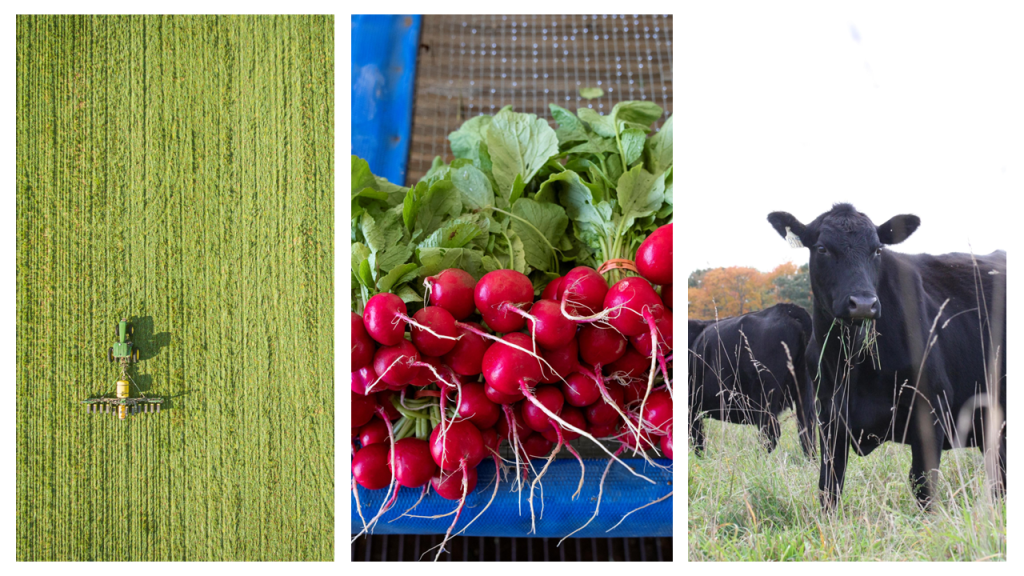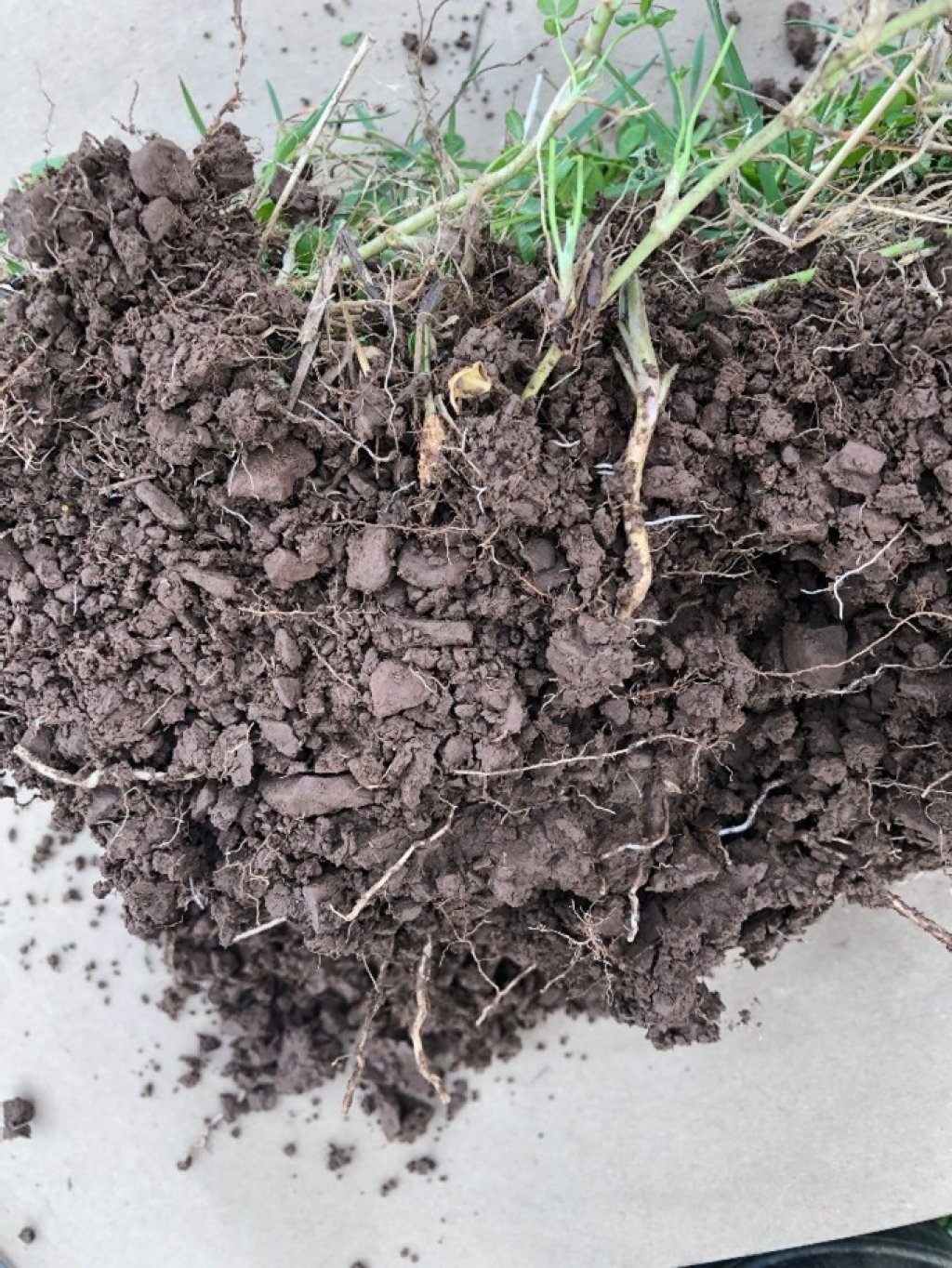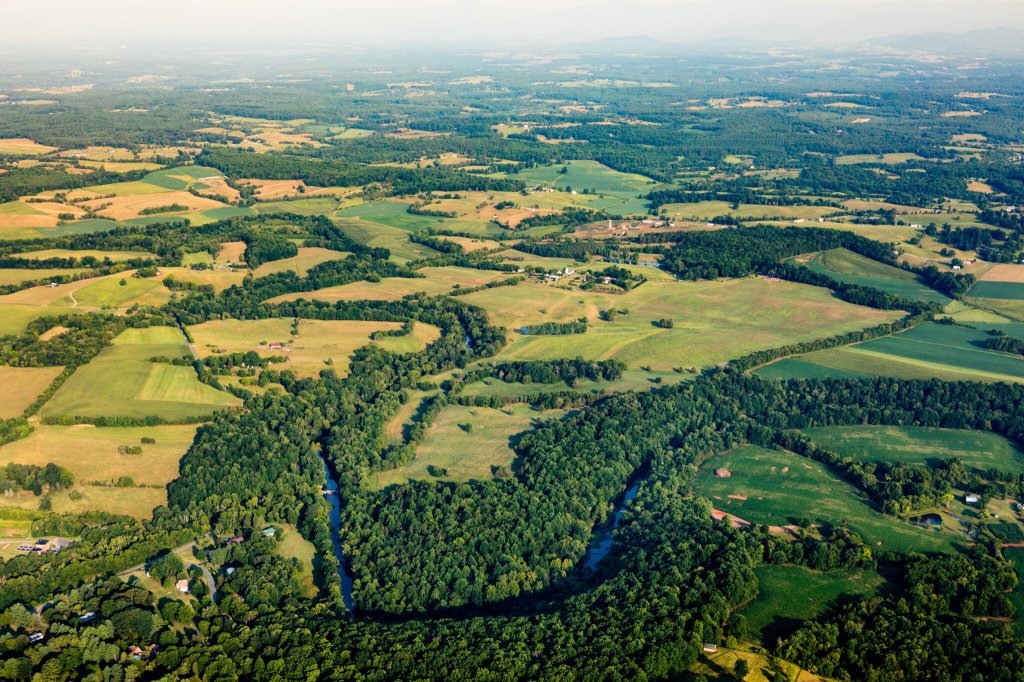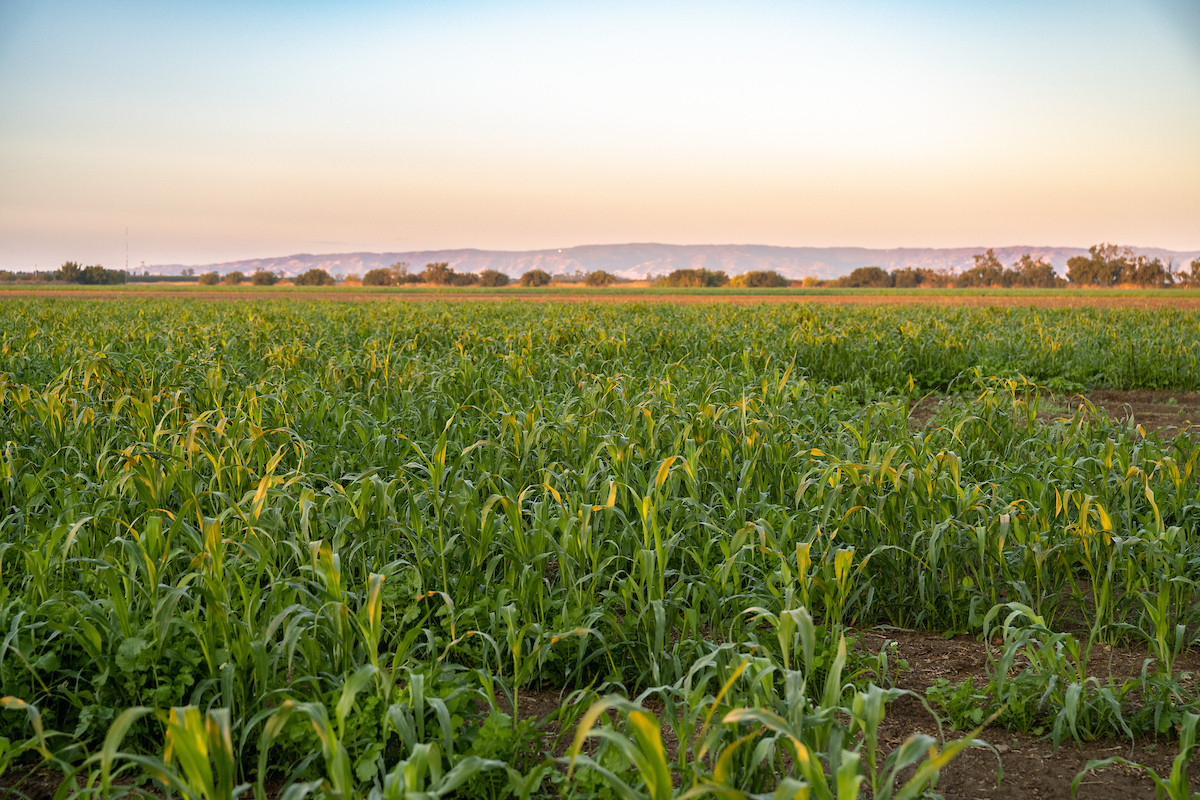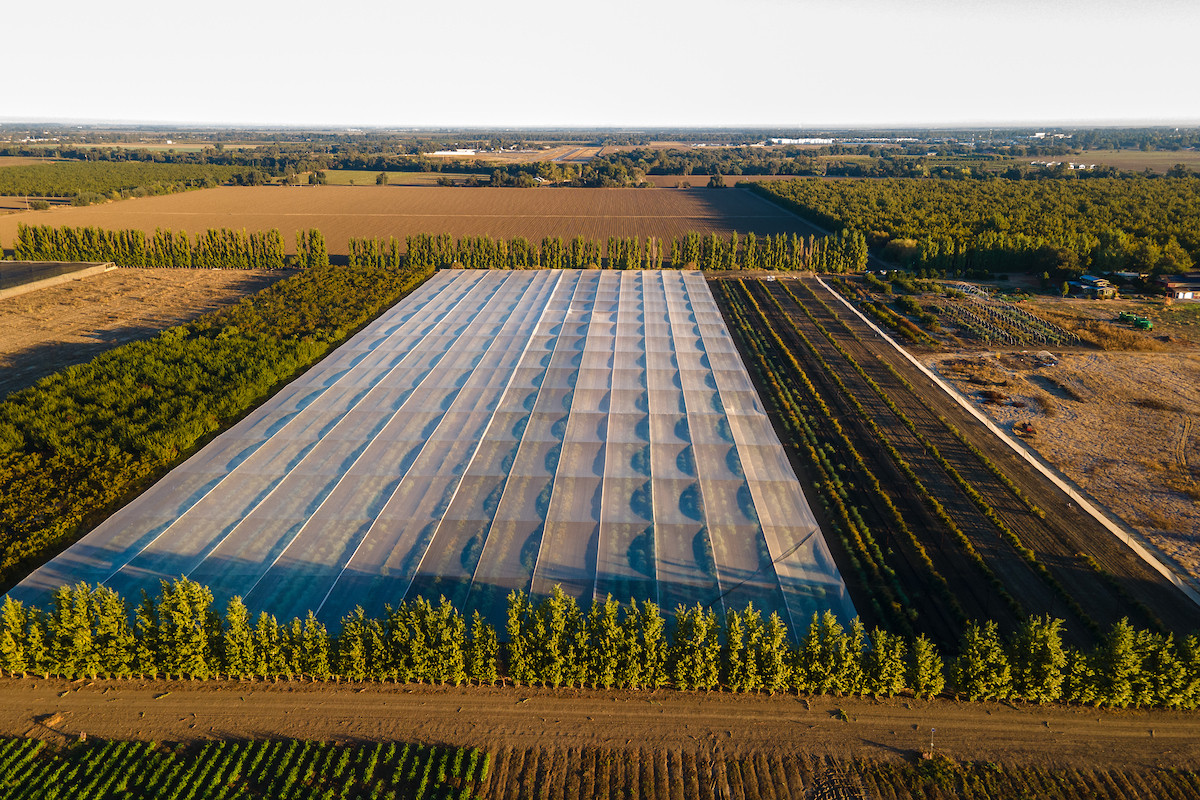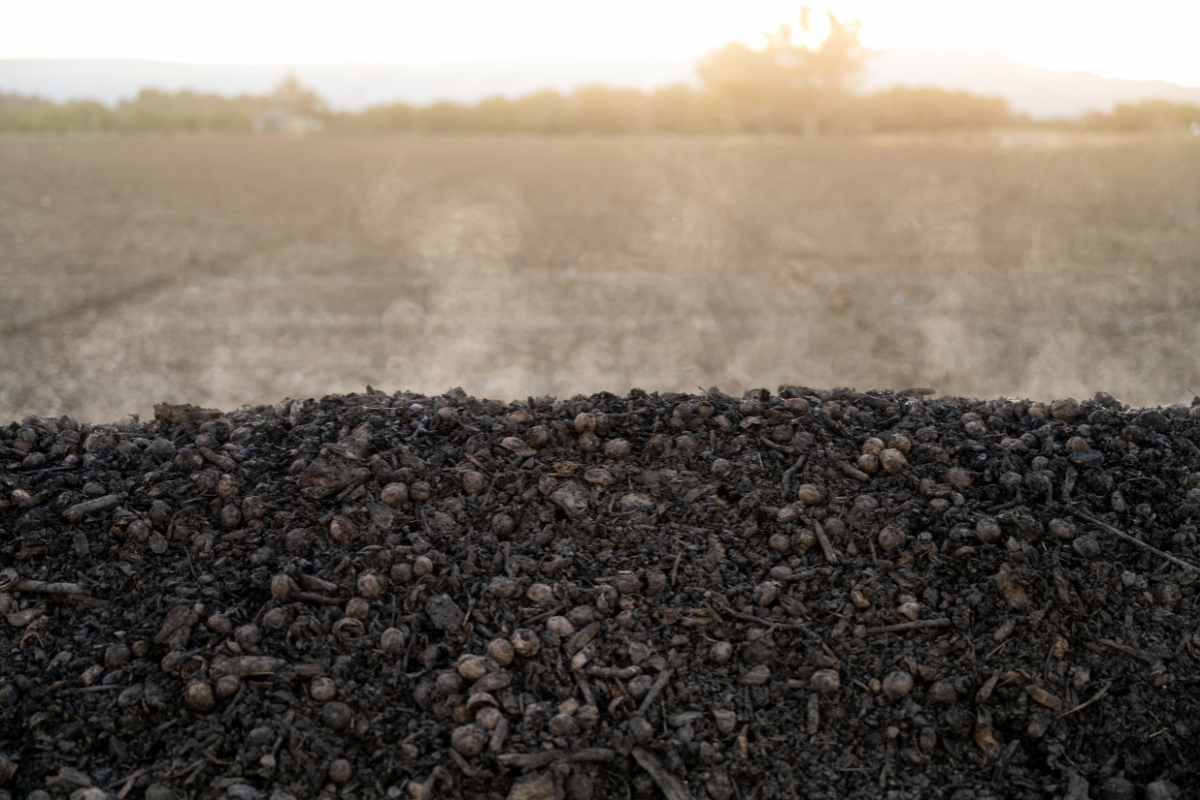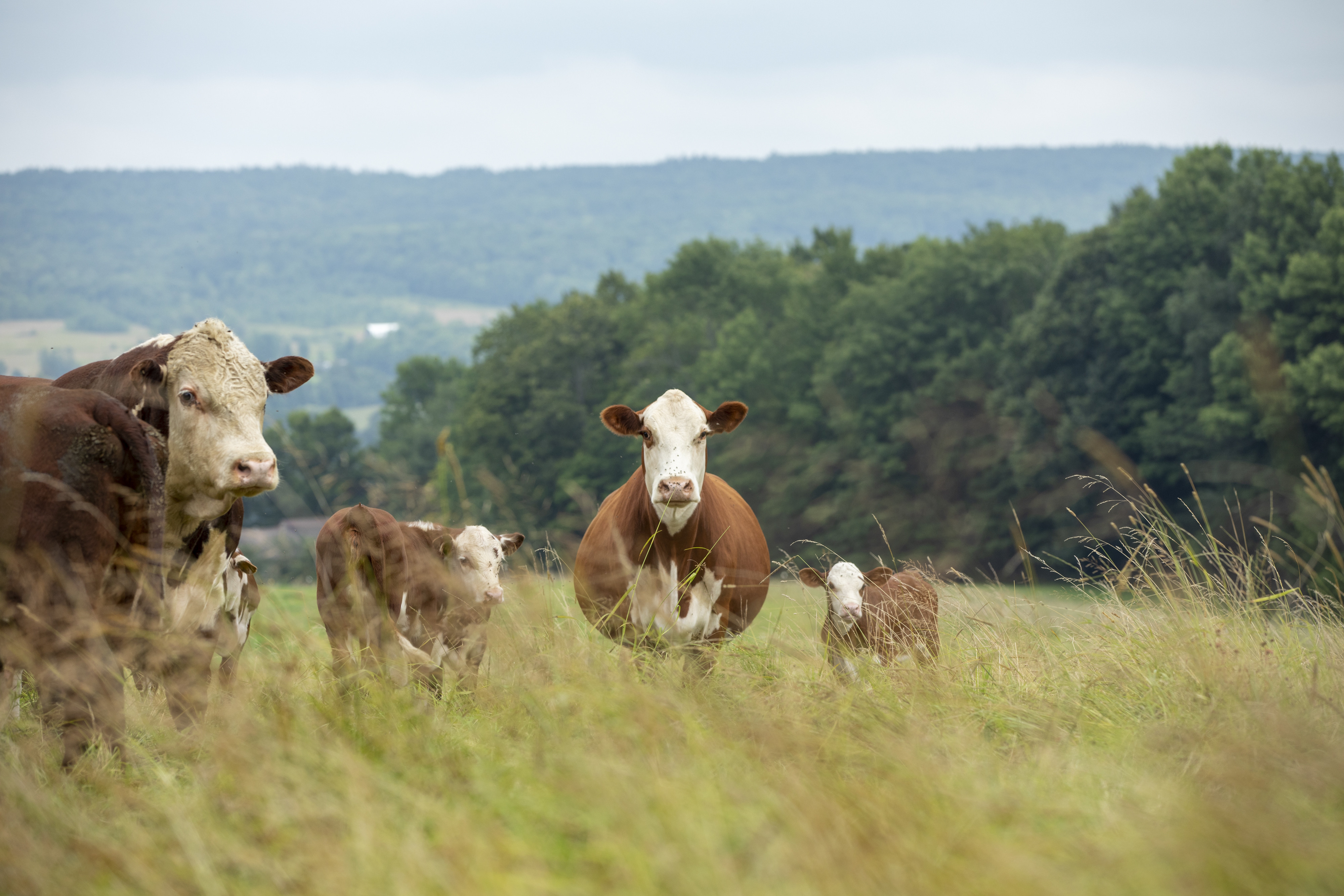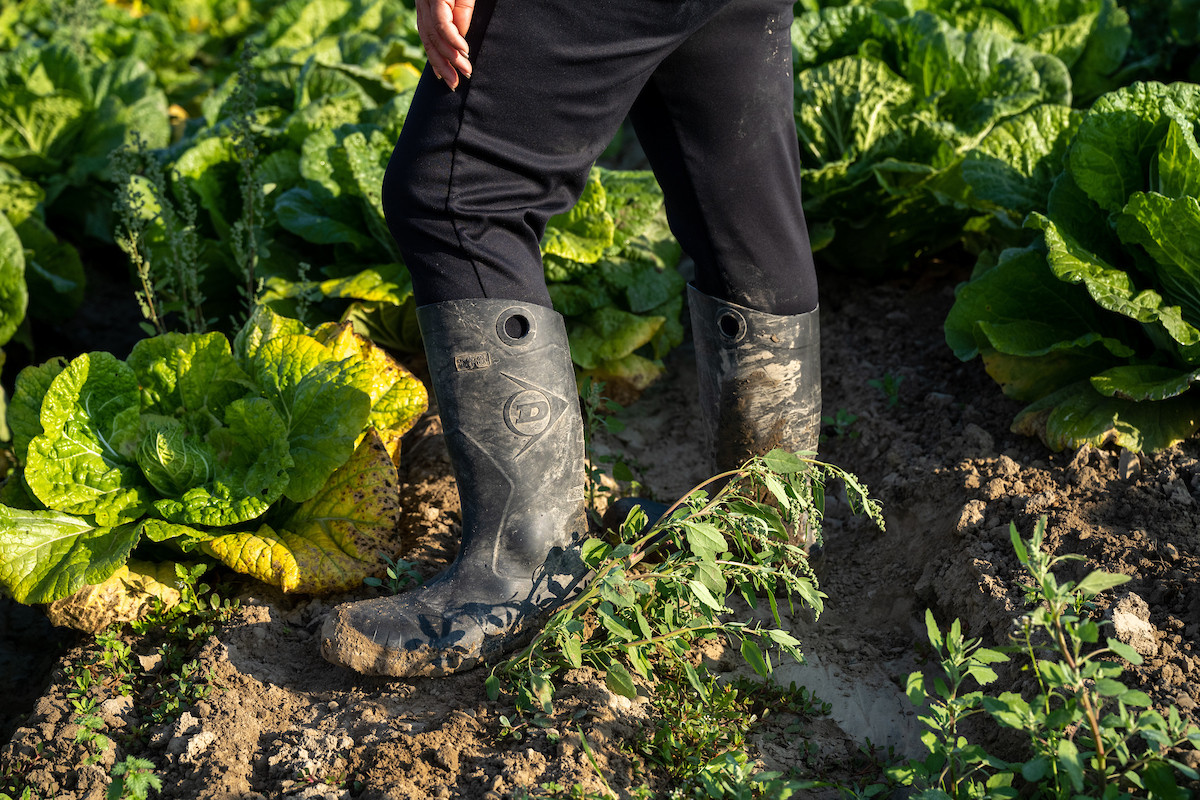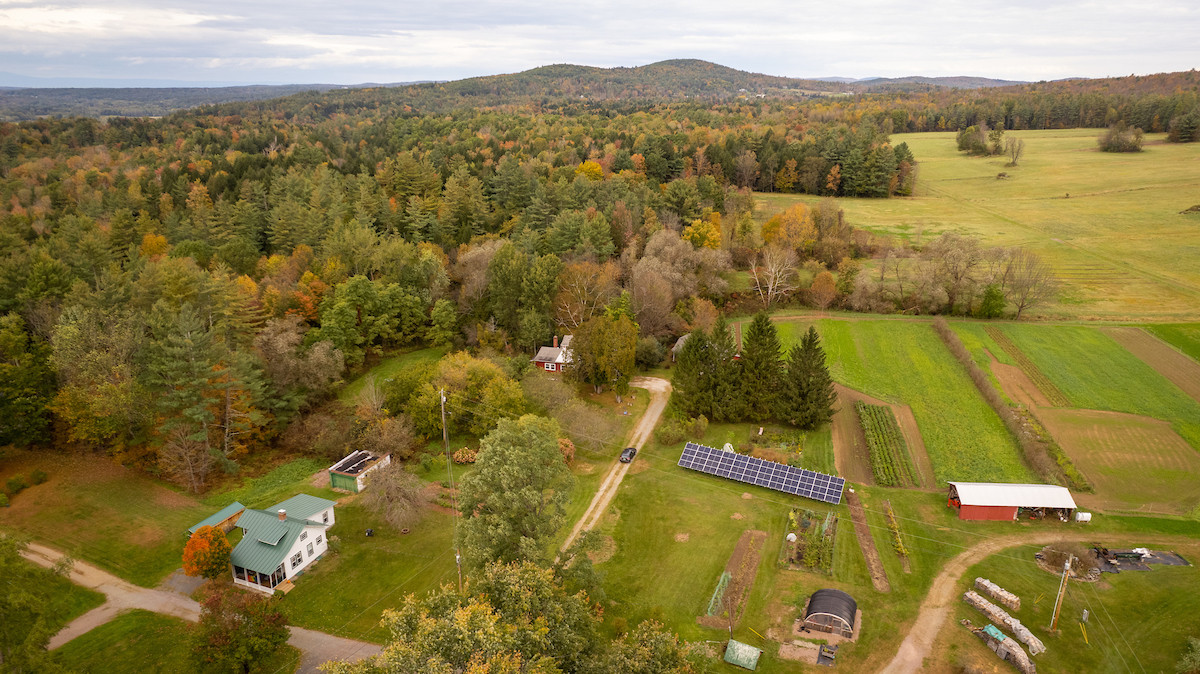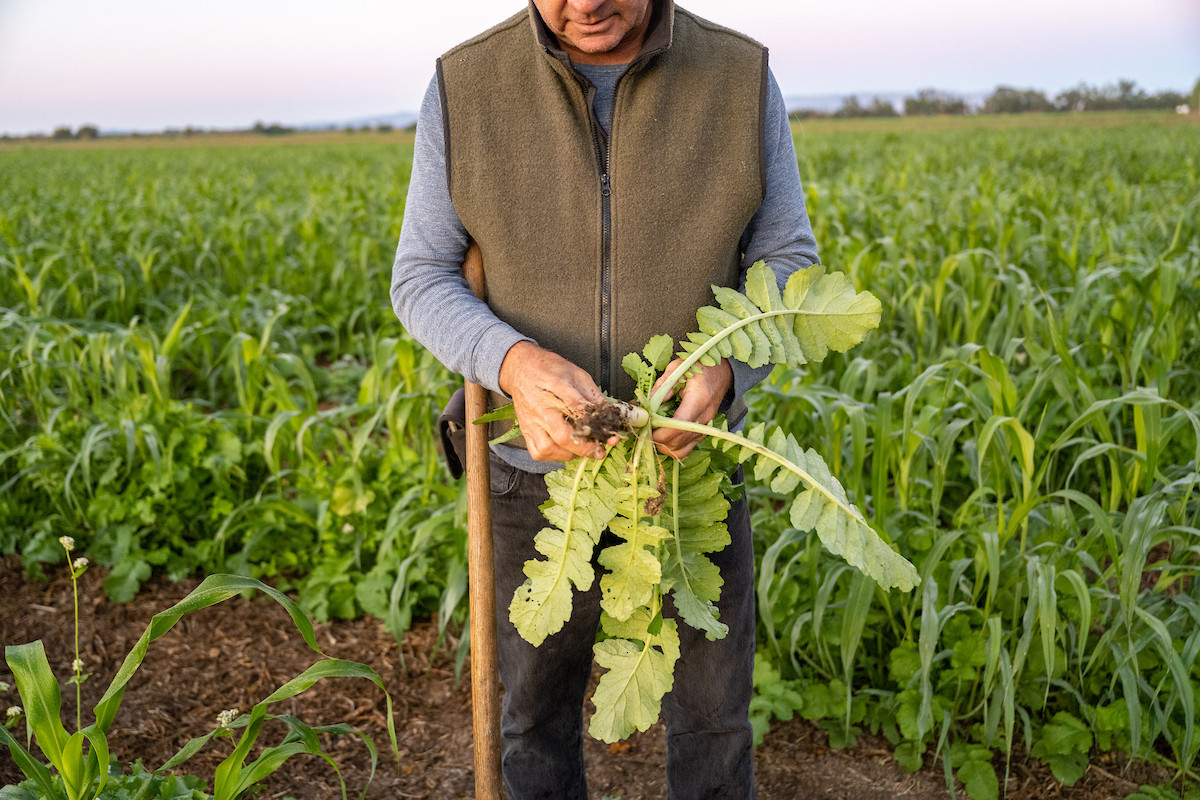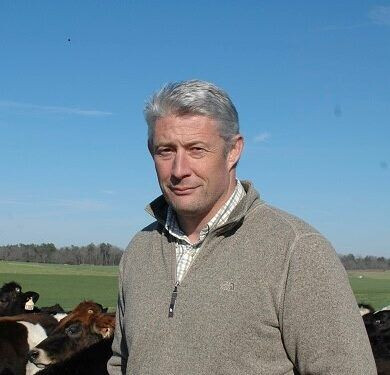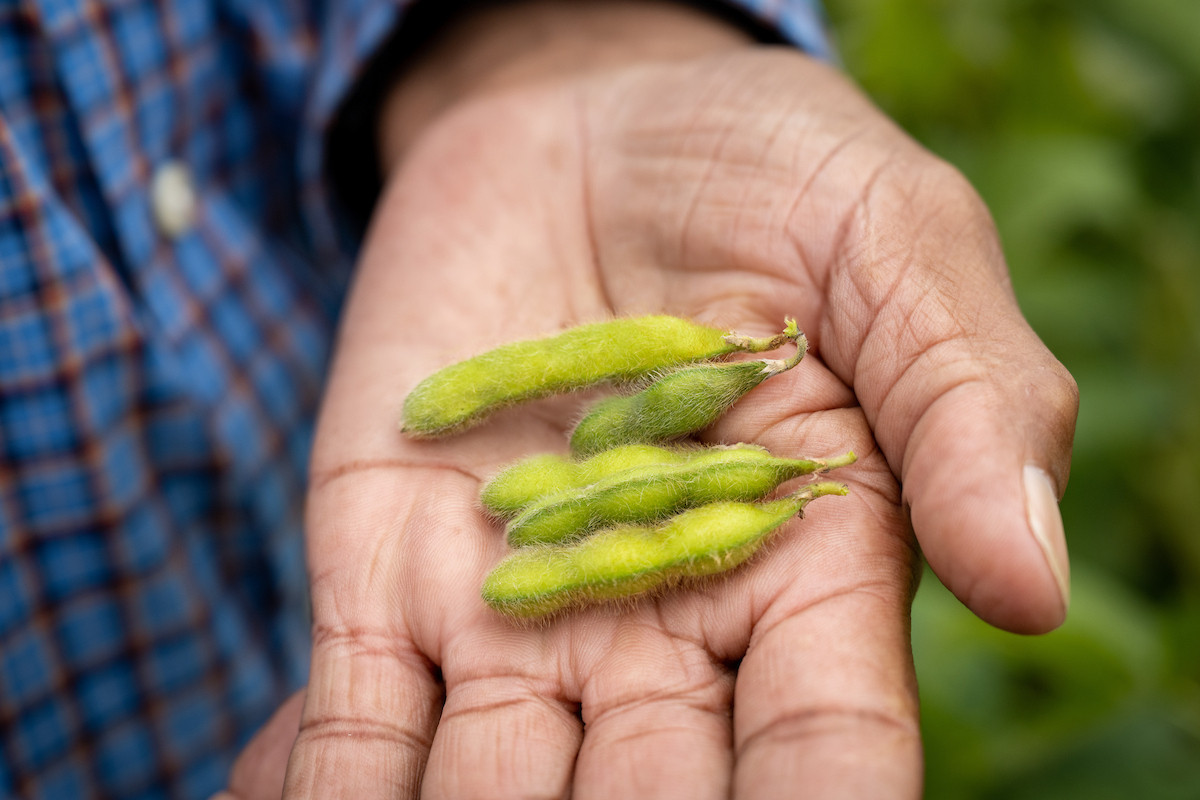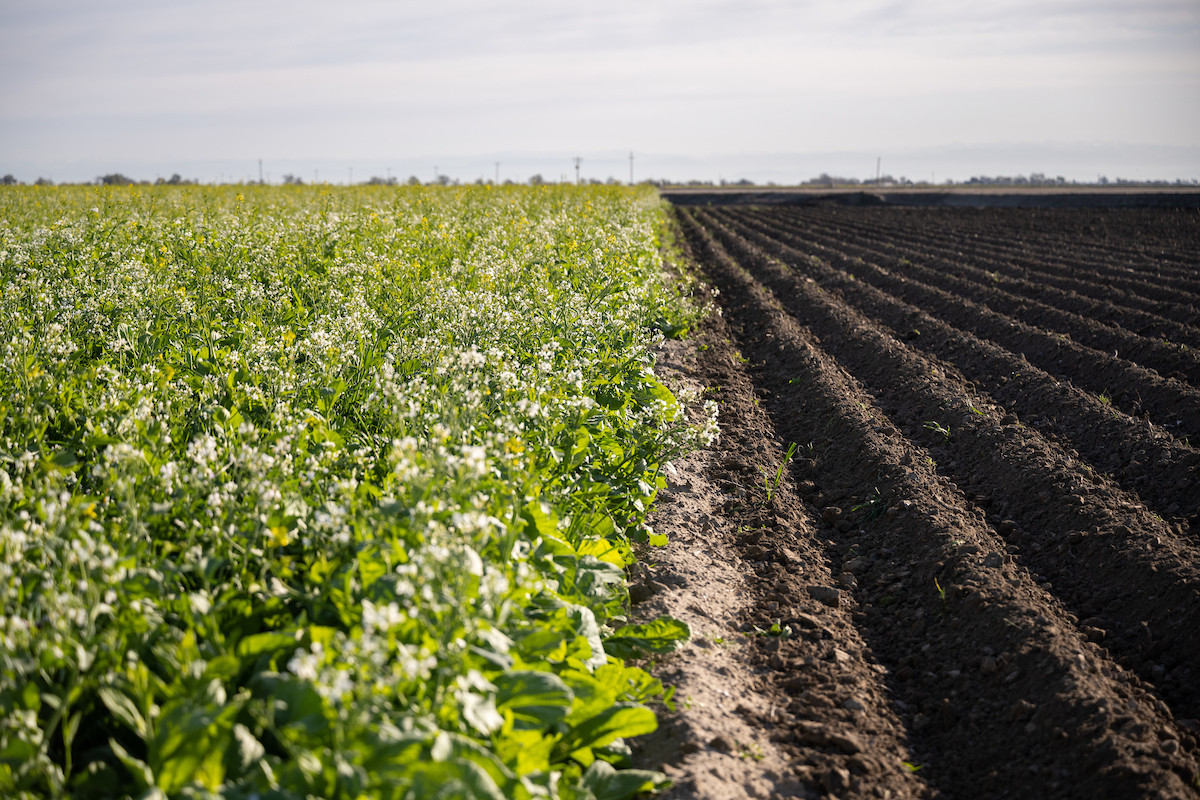Climate and Soil Health Initiative
Growing solutions and resilience to climate change
AFT is committed to catalyzing a New Conventional Agriculture: one that is broadly climate-neutral or better, diverse, resilient, soil health promoting, equitable, and environmentally, economically, and socially sustainable. To do so, we are elevating the role of farmers, ranchers, and the land they manage in adapting to and mitigating the effects of climate change. From policy leadership and coalition-building to research, training, and on-the-ground demonstration projects, we are working to scale up the adoption of climate-smart and soil health-promoting agricultural systems. We work to ensure a prosperous and resilient future for farmers and the land that sustains us.
For America’s farmers, climate change is a daily reality. The climate crisis threatens farmers’ ability to nourish a growing human population while protecting our nation’s air, water, soil, and biodiversity. To keep planetary warming well below 2°C as outlined by the Intergovernmental Panel on Climate Change (IPCC), and to meet the goals of the Paris Agreement, conserving farmland, increasing the amount of carbon sequestered, and reducing agricultural greenhouse gas (GHG), emissions are essential to mitigate climate change and increase climate resiliency.
According to the latest U.S. Greenhouse Gas Inventory, agriculture is responsible for approximately 10% of U.S. emissions. The majority of these emissions are due to either nitrogen emissions from synthetic fertilizer application or methane emissions from animal agriculture, while carbon dioxide emissions are minimal due to the significant ability for agriculture to sequester carbon. AFT is tackling all three of these issues through various projects, with particular focus on scaling up agriculture’s potential to steward for stable carbon in soils, which also builds high functioning healthy soils and resilient viable productions systems.
AFT supports farmers in adopting soil health practices that increase the amount of carbon sequestered in their soils, taking action to reduce GHG emissions, permanently protecting their farmland with a conservation easement, and hosting Smart Solar systems.
The good news is that the systems of practices that reduce net GHG emissions also improve farmers’ bottom lines and build on-farm resilience to extreme weather while providing many ecosystem services, or co-benefits, for society. This includes water quality and quantity, biodiversity, and increased climate adaptation and resilience.
Bottom line? At AFT, we believe farmers and ranchers have been, and will continue to be, an essential part of the climate solution.
AFT is leaning into our role as educators, science translators, researchers, policy influencers, and bridge builders across program areas to scale up adoption of soil health management systems. We are convening peer-to-peer networks and designing trainings that draw on our expertise in soil science, social science, on-the-ground implementation, and beyond, are creating resources for others to use and quantifying our impacts.
Current project highlights include
· Advancing sustainable biochar production to use as a climate-smart tool in the soil health management systems toolbox. Several biochar resources, including an application FAQ, guidance for joining our biochar projects, and the recordings of the ongoing Practical Biochar Implementation webinar series, are available on the Farmland Information Center by searching “biochar.”
· We are providing Advanced Soil Health Trainings to cohorts of advisors and mentors to build out a network of trusted local advisors and mentors who are farmers and ag service providers, across the country, through a variety of funding sources, originally funded through the Partnerships for Climate Smart Commodities projects.
· Our Breaking Down Barriers to Biochar Adoption on Farms from Coast to Coast project is underway, showcasing biochar integration across the country in diverse systems, addressing diverse questions and challenges.
· Our Conquering Cover Crop Challenges from Coast to Coast project is wrapping up, showcasing new methods to encourage cover crop adoption.
· We partnered with the USDA Agricultural Research Service and Regrow to use a computer-based model to simulate cropping systems with and without soil health management systems from 2022 to 2072 using climate projections. We also used satellite imagery to explore standard soil health practices in New York and Illinois cropping systems and how quickly they change over time. Check out our reports and blog post.
· We are building a collection of state reports that use our CaRPE tool to estimate how much each state’s farmers can contribute to climate mitigation goals and provide policy recommendations to get there.
· AFT is working to advance policies that support farmers in adopting more practices that build resilience to and mitigate climate change in the 2023 Farm Bill.
· Interested in the greenhouse gas benefit of avoided farmland conversion? So are we! We’ve completed a case study for a farm in Illinois, and we are developing a method for calculating this for ag conservation easements in the lower 48 states.
· Our report, “Combatting Extreme Weather on U.S. Cropland,” focuses on the significant potential of no-till and cover crop practices to increase soil carbon sequestration and reduce nitrous oxide emissions for a net reduction in GHG emissions.
Watch for new publications on the Farmland Information Center, and sign up to be notified in this interest form or when we publish something new by emailing us at [email protected]!
Our Strategies
We look to communities, organizations, governments, broader society, and individuals to shape the future of our New Conventional Agriculture that we can all be proud of. We need everyone at the table – from small to large farms, individual farmers and ranchers, and industry – to take bold actions that make a difference for our climate future. At AFT, we take a holistic approach to support all farmers, ranchers, and the land they manage—all scales and types of operations—to improve the ecological, social, and economic conditions of farms, ranches, and communities. Our work centers on supporting farmers and ranchers in the field, quantifying and analyzing the impacts of their actions, and developing and advocating for programs and policies that will catalyze an agriculture-wide shift towards these actions.
These approaches are interwoven throughout our three key strategies below to help the agricultural community solve and build resilience to climate change:

